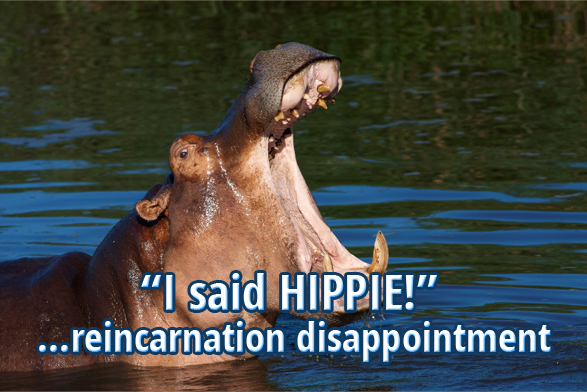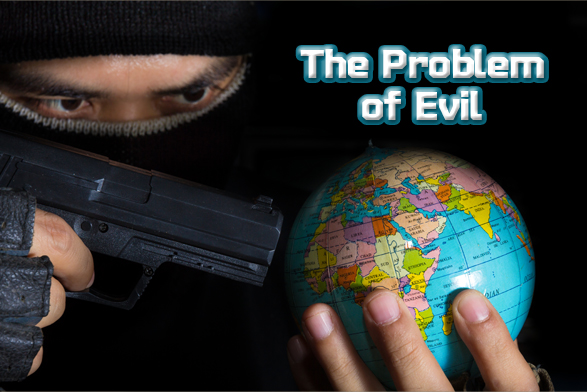Finding Truth: Replace the Idol–Make the Case for Christianity
Principle#5: Replace the idol—make the case for Christianity
In doing this, we can get started by identifying Christian ideas that those other worldviews smuggle into their own to make them more attractive. A moral relativist, who says there is no universal, transcendent moral laws, is likely to say that racism or spousal abuse are wrong. But how can they say that if they don’t believe in moral absolutes? Even though they say they don’t believe in an absolute morality, they do. It’s just not your morality. And they will have no problem with forcing their morality on you. Moral relativists claim to be about tolerance and humility but they are anything but if you don’t agree with them.
Want an example of this? A baker, who is a Christian, sells to a couple who is gay for years. No problem so far. But when they want him to celebrate their wedding by making a cake for it, he declines because he is morally opposed to same sex marriage. He is morally opposed to making something that celebrates something he opposes. They take him to court and win. Rather than go against his convictions, he is forced to close his bakery. This has actually happened several times. Even though the Christian baker recommended other bakeries that would bake this cake, the couple refused and took him to court and won.
Now, let’s change the identities of the individuals involved. Let’s say a white supremist group wants you to bake a cake that has the N-word on it. Let’s say you’re a black person who owns the bakery. Do you think for a minute the courts would force you to make this cake? I don’t think so. Let’s assume you’re a Jewish baker and a neo-Nazi comes in and wants you to bake a cake celebrating their racist group. They want the cake decorated with an image of Hitler on it. Do you think he courts would force you to bake this cake? I don’t think so.
Our founding fathers believed that people have certain inalienable rights that are given to them by their creator. These rights spring from a Christian worldview. A committed materialist doesn’t believe in absolute morality A post modernist usually doesn’t believe in Christian morality. But both borrow from Christianity because our morality is very attractive to unbelievers. Even some atheists admit they borrow Christianity’s high view of morality.
Historians tell us no other culture, ancient or modern, came up with the concept of nature being run by “physical laws”. It appeared only in Europe in the Middle Ages, when western culture was permeated by Christian assumptions. So much so that nearly all scientists were Christians who expressed their discoveries of the physical laws in religious terms. Modern science is often called the handmaiden of Christianity. The physicist Paul Davies said that, ”They (the scientists who were Christians in the Middle Ages) saw their science as a means of uncovering traces of God’s handiwork in the universe.” You can also say this about a lot of other areas of life, life health care and education for the common man, the sanctity of human life, etc. For a listing and examples of these areas, take the free class on this website called “How Christianity Changed the World”.
Further problems for the materialist:
– how do the blind forces of nature bring about humans who are able to cognitively discover, identify and comment on these blind forces of nature?
– how can natural forces create humans who are able to turn around and use these forces for our benefit? Can a puppet gain control over the puppeteer?
– how did mindless, purposeless physical forces create beings with minds and purposes?
– how could an undesigned process produce a species that designs things like buildings, airplanes, etc.? How is it possible for humans to be so different from the physical forces that produced us? Can water rise above its source?
Conclusion:
When science becomes the sole source of all truth, it becomes scientism. And scientism is an idol. It reduces humans to a robot or a machine. What it cannot fit into the scientism box, it either redefines these things in scientific terms or it discards, dismisses or denigrates them.
If there is no God and life is a chance product of blind material forces, what purpose does human life have? Is it just a chemical accident on a rock flying thru the cold, empty reaches of space? If there is no God, when we die, we cease to exist. As the atheist Richard Dawkins writes, “There is, at bottom, no design, no purpose, no evil, no good, nothing but pitiless indifference.”
According to the Big Bang theory, the universe will die a ‘heat death’, where everything in the universe will eventually be the same temperature. All human civilization will cease to exist. The best and highest achievements of the human race will have no lasting significance. What then is the purpose of life? Why do we strive to make the world a better place if its not going to matter in the end?
But we are conscious of a morality. We do want to make the world a better place. We do feel like our life means something. We do feel like our life can make a difference, that we can be significant. Where does all this come from? Christianity affirms all of these things. It says we are made in the image of our Creator. That we are creative. That we have purpose and that is to be fruitful, multiply, fill and subdue the creation (Genesis 1:26-28, the creation mandate). That we have worth and what we do will have eternal consequences.
I hope this brief synopsis of the excellent book “Finding Truth” by Nancy Pearcey will provide you with the tools to recognize viewpoints that are not Christian. And to provide a biblically based informed response.
May God bless your efforts.
For His Kingdom,
Dave Maynard
http://BSSSB-LLC.com







